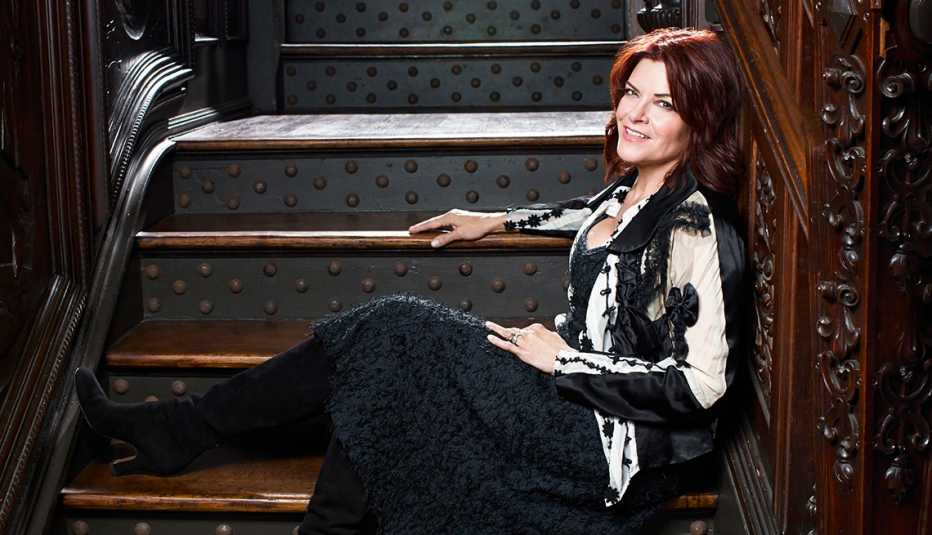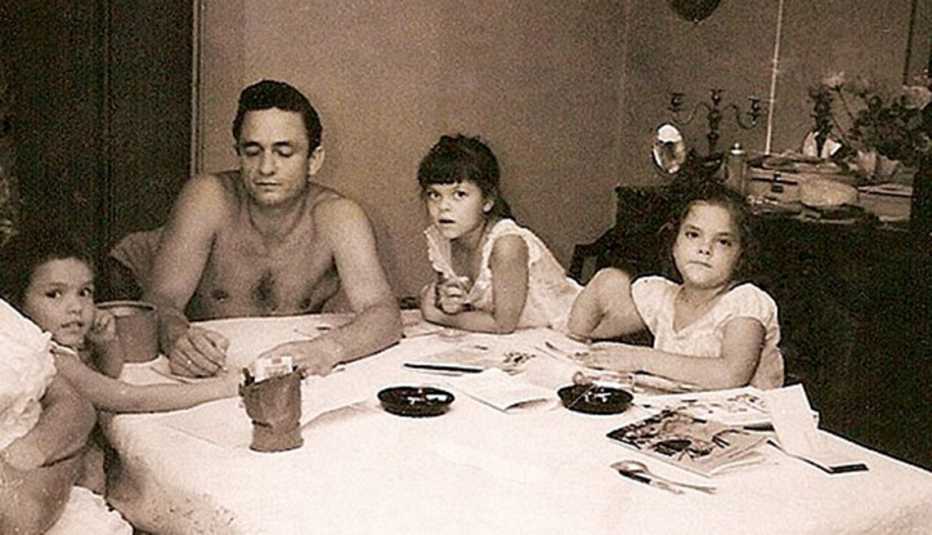Staying Fit


A handful of words, expertly woven into a fierce melody, reveal a plaintive story of crushing disappointment, framed by the strained and aching timbre of John Lennon’s voice. I heard “No Reply” for the first time when I was 10 years old. I got the album Beatles ’65 and played it on my little record player with its tweed case, in my bedroom in Casitas Springs, California. It’s a song about betrayal. He saw her walk in the door with another man. He’s been watching her, but it’s not creepy — it’s heartbreaking. He is so full of desire that he can’t help himself. The shock of finding that you aren’t loved is the deepest cut.
My dad was the singer Johnny Cash. In Casitas Springs in 1965, I was in my parents’ bedroom, looking at my mother’s clothes and trailing my fingers over the beautiful things in her long closet — the white chiffon and gold-sequined cocktail dress, the tweed suits, the silk blouses and capri pants — when the phone rang. I picked up the receiver at the same time as my mother, Vivian, who was in the kitchen. She didn’t hear me. My father’s voice was on the other end. They spoke for a few minutes, and then my father hung up. It’s odd that I don’t remember their words, but I remember the devastation I felt. Cracks in the foundation of their marriage were clear. I dropped to the floor. I couldn’t hang up the phone. I sat and listened to the dial tone for several minutes, until I heard my mother walking down the hall, and then I quickly put the receiver back in the cradle. She walked into the room and acted as if nothing had happened.


AARP Membership— $12 for your first year when you sign up for Automatic Renewal
Get instant access to members-only products and hundreds of discounts, a free second membership, and a subscription to AARP the Magazine.
The subtext of my own life was the same as the one in “No Reply”: one of disappointment and longing. I knocked on my parents’ door and no one answered. My mother and father were not at home. Just like the song: “When I came to your door / No reply.” Perhaps it’s only now, a half-century later, that I realize why those eight words held such power: They embodied shame and desperation. And the shame of desperation. Why is there no reply from the woman behind the door, who apparently once loved the singer? Why is there no reply from my parents? There is a terrible reason: Someone else is in the house.
Ray Charles said that singers were better at 50 than at 25, because a whole life showed up in the voice at 50. But John Lennon was nine days shy of turning 24 years old when he recorded “No Reply.” Just this once, Ray was wrong.
Romantic betrayal is a sophisticated concept for a 10-year-old. What do promises mean if they are nullified by sexual restlessness? This was beyond my understanding in 1965. The song was mysterious. Betrayal was incomprehensible, but thrilling and dark. There was a roiling inner world behind the stoic facades, and that world could be the doorway to art and music. It might be a door I could walk through.


































































More on entertainment
Martin Short and Steve Martin’s Greatest Collaborations
Watch their funniest scenes from 'SNL' to 'Only Murders in the Building'